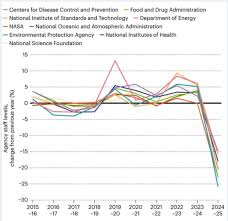The Trump Administration takes on the International Maritime Organization
Once again, the new US thumbs its nose at international consensus.

Despite its constant chaos, the Trump administration is at base quite consistent in its approach to both international law and climate change — it seeks to minimize international cooperation while maximizing greenhouse gas emissions.
No surprise, then, that the Secretaries of State, Energy, Commerce and Transportation last month issued a joint statement critical of the International Maritime Organization’s “Net-Zero Framework” aimed at achieving net zero GHG emissions from shipping by roughly 2050.
Never mind that the Framework is not a surprise, or that earlier US whining could not derail it. The IMO has been actively developing working on the Framework since adopting an initial strategy for reducing greenhouse gas emissions in 2018, formally set climate targets in 2023, and initially approved the Framework in April, over US objections.
Never mind that the US, as a member of the IMO (along with 175 other countries) and of that body’s Marine Environment Protection Committee (which includes all member states), has had every opportunity over the years to participate in negotiations, and to persuade other countries to agree. In a typically childish move, the Administration pulled the US from the talks in April rather than simply vote against it.
And, of course, never mind that the joint statement has little connection to the truth. The Framework requires that shippers reduce their carbon intensity over time and pay fees if they cannot achieve the required carbon intensity. The idea is to bring market forces to bear to encourage the development and adoption of less polluting technologies. The Framework does not, as the Administration charges, impose “a global carbon tax on Americans.” It imposes a global carbon tax on international shipping. Somehow the Administration sees that globally uniform prospect, but not US-specific tariffs, as a tax on American consumers. Nor, contrary to the joint statement, does it preclude the use of “lower emissions options where U.S. industry leads.” The Framework focuses on carbon intensity. It is agnostic as to what technologies shippers choose to employ. Nor does it threaten to impose fees on “[e]ven small vessels.” It addresses only large ocean-going ships over 5,000 gross tonnage — those are ships with an internal volume of at least 500,000 cubic feet, or roughly 3.7 million gallons. A tanker that size is about 100 m long. Not a small vessel in my book.
The joint statement says that the US will “not hesitate to retaliate” against any member states that support the Framework when its implementation is voted on next month. The implication, of course, is that Trump will impose ever higher tariffs on Framework supporters. Which, if the US does not manage to derail the Framework, will definitely mean higher costs specifically for US consumers. Just one more Administration attempt to undermine the international order in order to harm the planet and American pocketbooks. As I said, no surprise.
UPDATE: Notwithstanding the Administration’s bluster, nearly 200 shipping companies, including American companies, have endorsed the IMO’s Framework.







Reader Comments